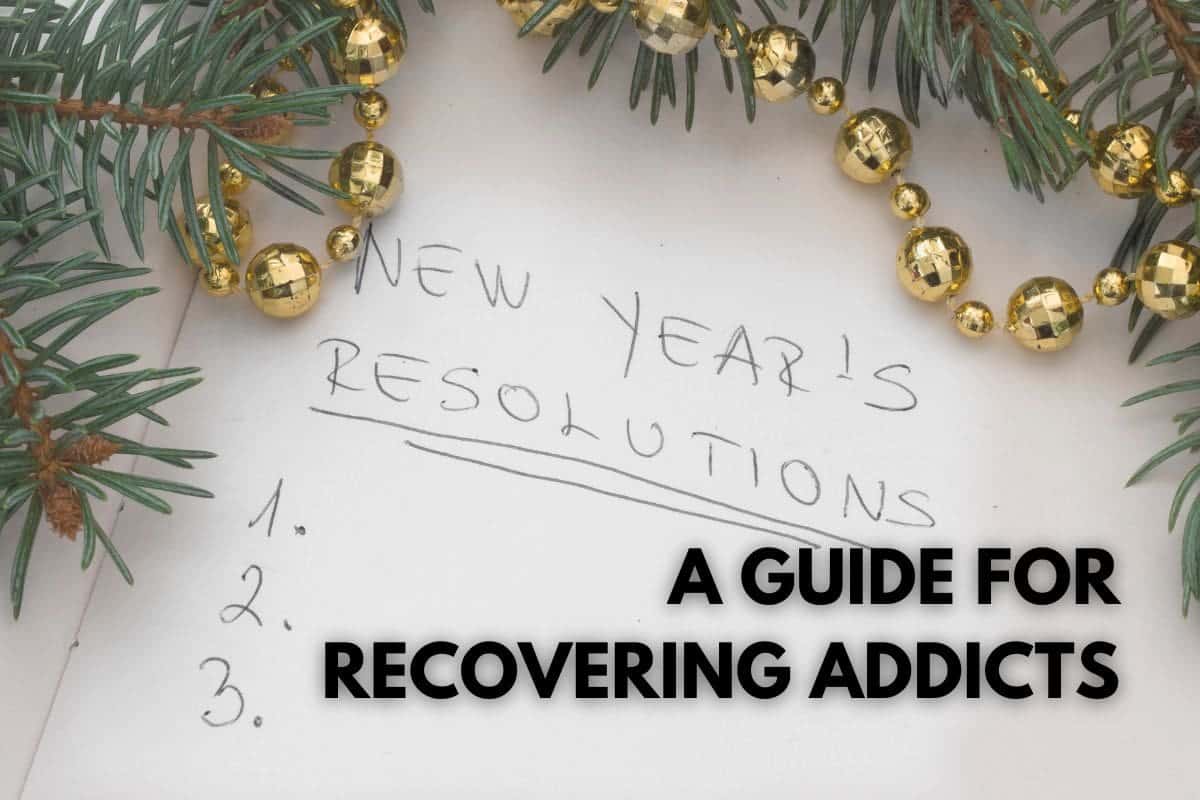New Year is one of the most common times for people to make promises to themselves about how they’ll improve their lives in the next year. The problem is New Year’s resolutions are harder to keep than they seem. This goes double for recovering addicts, who must manage their feelings and physical reactions to their goal to stay sober. In this article, we’ll explore why most resolutions fail and what you can do to avoid the common mistakes, setting the stage for a prosperous new year in terms of recovery.
5 Realistic New Year’s Resolutions For Recovering Addicts
These are five goals recovering addicts can strive for in the new year. They may not be the flashiest, but they help build confidence gradually by getting things done instead of just wishing.
- Take things one step at a time: let go of the “all or nothing” mindset. Everybody’s path is unique. It’s better to take just one step firm forward than try to run before you are ready.
- Stay positive: if you are recovering from alcohol abuse, being surrounded by alcoholic beverage ads (as we often are) can be triggering and stressful. You should be focused on the future you are creating for yourself.
- Improve your diet: having a nutrient-rich diet will help you stay physically and mentally healthy throughout the year, setting a strong foundation for any specific goal you set. Try to incorporate kale, starch-rich vegetables like potatoes, and cruciferous vegetables like broccoli.
- Learn a new hobby: learning a new skill is a great way to enrich your life and increase your chances of employment. Or you may do it because it makes you feel good. Consider a new language, learning how to play an instrument, or painting.
- Start a journal: starting a journal can be a great way to track progress, which is one of the best habits to have when you want to achieve long-term goals. You can journal about anything you want: how your feelings on recovery have evolved, how many miles you can run compared to when you just started, days of following your medication, and more.
Why New Year’s Resolutions Often Don’t Work Out
Many of us make New Year’s resolutions, but most don’t keep them. This is true for everyone, regardless of drug issues. The problem is that we set unrealistic or unattainable goals, and when it comes time to reach them, we get discouraged and give up.
These are some of the most important reasons why New Year’s resolutions fail:
- They are not realistic: as mentioned before, people often make promises that are not grounded in reality and experience, leading to overconfidence that plays against them.
- No accountability: managing our resolutions entirely on our own works for some very disciplined people, but others benefit from someone to hold them accountable. If you can, try to get a friend to help you stay accountable.
- No tracking plan: similar to accountability. If you commit to checking your progress every fortnight or month, you’ll constantly be measuring your progress. This gives you a good idea of what’s possible and what’s overconfident.
- No structure: if you make New Year’s resolutions on the spot with no prior planning, you are more likely to make unrealistic promises.
- Doubting ourselves: the struggle of addiction recovery often makes people doubt themselves and their ability to move forward.
How Can Recovering Addicts Set Realistic New Year’s Resolutions?
To avoid suffering the common pitfalls, follow this advice:
- Set clearly defined goals: “staying sober” is a worthy goal to strive for. The problem is that it’s not very specific about how you can stay sober. When setting goals, follow the SMART method: measurable, achievable, relevant, and time-bound. Identify the habits that will help you achieve your goals and learn to stay true to them over time.
- Track your progress: find ways to measure your progress, like the number of days you’ve been eating 3 meals a day, or any other measurement that will motivate you by letting you observe progress. You’ll have a better idea of where you were in the beginning and where you are now.
- Be patient: understand that progress may not always be linear. Some people may progress quickly early on but plateau later, while others may start slow but steadily see progress. Your path will be unique, and you’ll need to be patient.
- Share your achievements: having a strong support system is important for any significant goal in life. It may help you share your goals and achievements with your loved ones if you feel comfortable.
- Schedule your goals: put your goals in the calendar. Don’t just say you are going to a support group session; search for when they meet and plan to go. Then go.
Short And Long-term Goals To Strive For
Setting a timeline for specific goals can be great for grounding your promises in reality. Explore and incorporate these potential goals into your life, or seek your personal goals in the timelines that work for you.
Short-term Goals:
- Attending a certain number of meetings each week
- Making time for sober activities that you enjoy
- Staying connected to your support system
- Identifying and managing triggers
Long-term Goals:
- Maintaining sobriety for several months
- Improving mental health over time
- Finding stable housing and employment
- Building and maintaining healthy relationships
Making grand promises without a plan to work up to them is a surefire way not to achieve your goals and get demotivated. Explore achievable goals and take things one step at a time. It will drive progress over time (even if slowly) and keep you in contact with what you can do in the time you have.

































